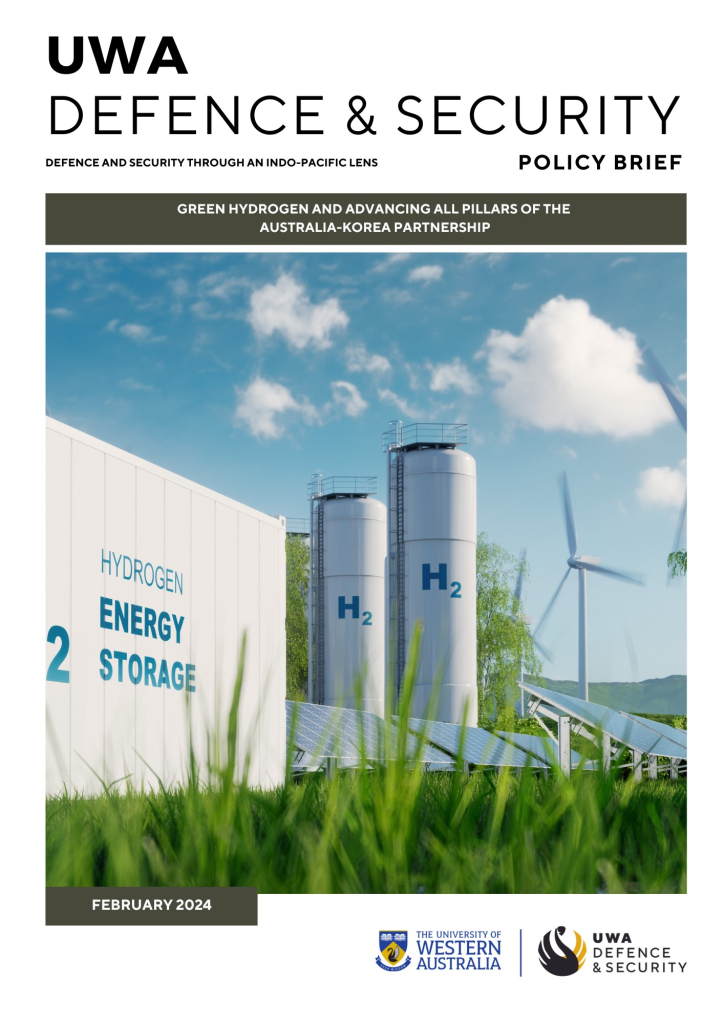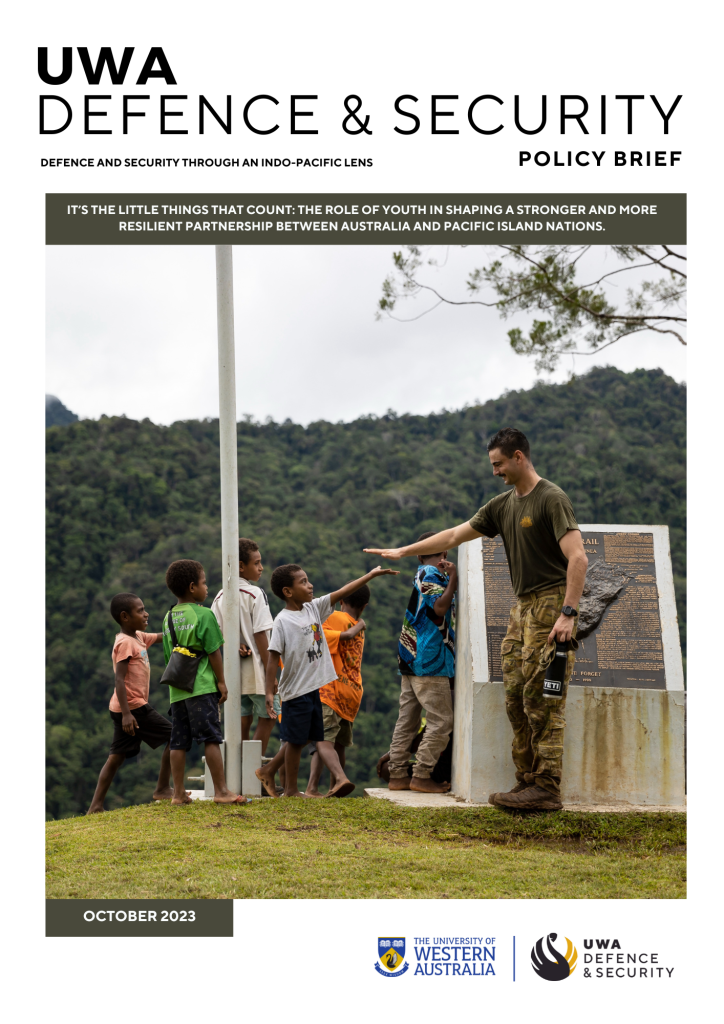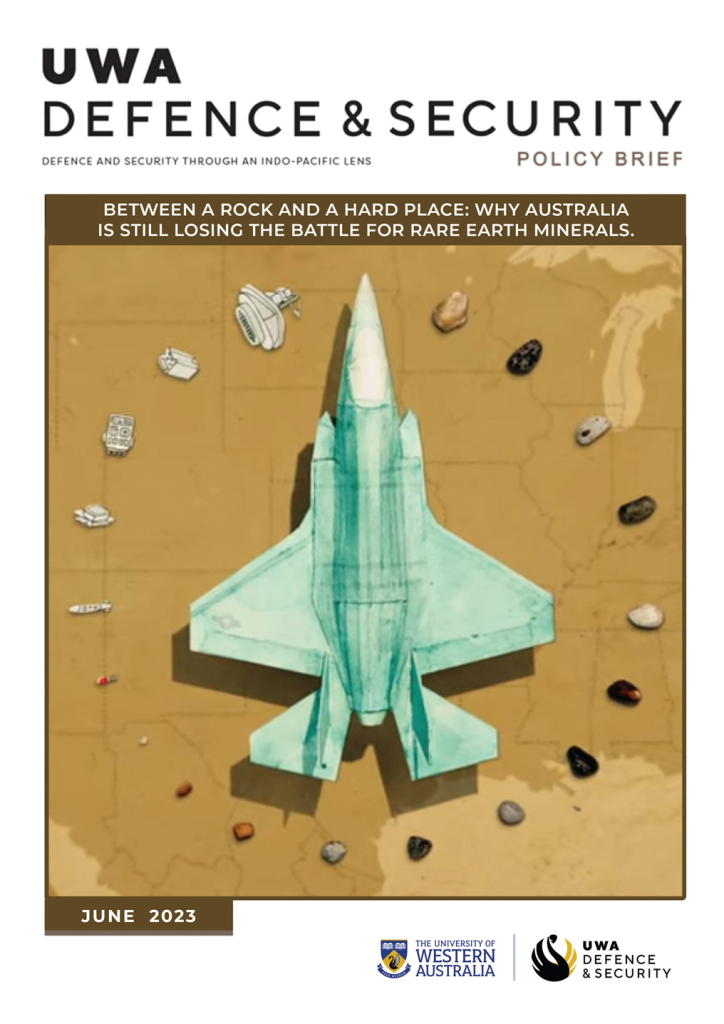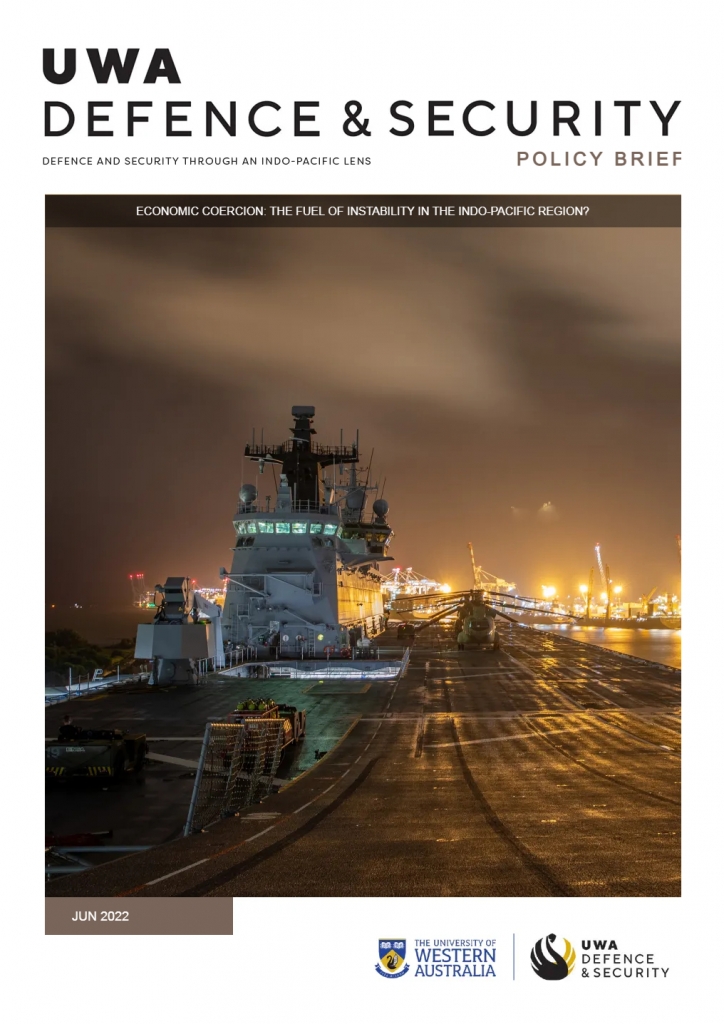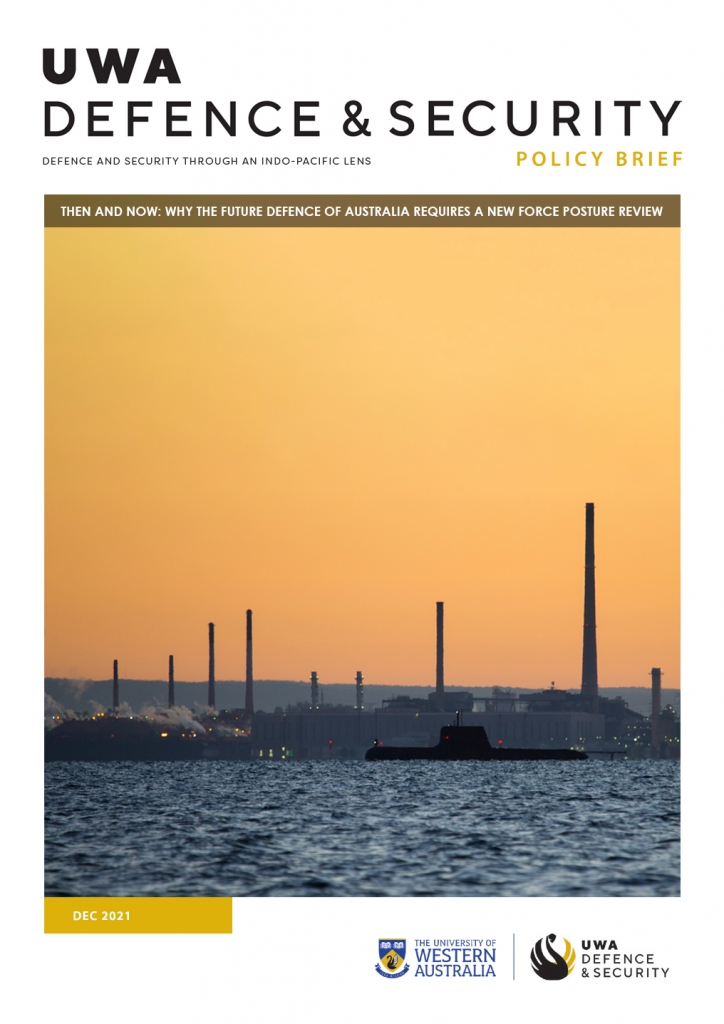Policy Briefs
The DSI Policy Briefs represent concise outlines of key issues and topics in Indo-Pacific Defence and Security. These briefs can be either advocacy focused or more focused on providing objective background information.
Green Hydrogen and Advancing all Pillars of the Australia-Korea Partnership
Authored by Abbey Watkin
Bilateral green hydrogen cooperation between Australia and Korea has the potential to advance this relationship into a stronger economic, security, and P2P partnership. While traditionally, Korea-Australia relations have been constrained to trade-related concerns, the green hydrogen economic initiative has the potential to expand upon these narrow foundations. While promoting clean energy industry leadership, green hydrogen cooperation can also positively affect regional defence and security through aid and development. The pursuit of this will also expand the P2P links between Australia and Korea. Korea-Australia diplomatic policy should target green hydrogen cooperation, and must also specifically support all three pillars of this bilateral relationship if the true potential of Korean-Australian relations are to be realised
It’s the Little Things that Count: The Role of Youth in Shaping a Stronger and More Resilient Partnership between Australia and Pacific Island Nations
Authored by Sarah Duong
This policy brief advocates for the Australian Government to creatively recalibrate its Pacific step-up policies and renew its commitment to Pacific Island nations by utilising a youth-oriented approach on climate action. Over the last decade, a new generation of passion-driven youth climate activists has burgeoned, demanding global political attention and action to their demands. Although they present immense potential to be active stakeholders in the climate communication arena, these new voices have been largely underprivileged and even criticised in policy discussion, such that their views are discredited in favour of traditional authority figures. Utilising a youth-oriented approach will reap potential benefits to all parties involved.
Between a Rock and a Hard Place: A Risk Analysis of Australia’s Rare Earth Supply Chain Strategy and its Implications for National Security
Authored by Michael Hilliard
This policy brief examines the importance of Rare Earth Elements (REE) in next-generation electronics, renewable energy, and defence technologies, highlighting Australia’s reliance on international sources and the challenges posed by China’s current dominance in the global REE supply chain. The Australian government aims to position the country as a global leader in the critical minerals sector by collaborating with other nations, including the US, Japan, and Malaysia. To help achieve this goal, the government must allocate significant funding to expand programs like the National Reconstruction Fund, increase the availability of non-recourse loans, and foster collaborations between mining, chemical, and educational institutions.
Expanding the Indo-Pacific Region to East Africa
Authored by Faiza Samatar
The western expansion of the Indo-Pacific to the shores of East Africa requires more contextual understanding of both the military capabilities and the external defence environment of the region. This policy brief has examined the growing importance of the relationship between the established Indo-Pacific powers and emerging East African littoral states.
Economic Coercion: The Fuel of Instability in the Indo-Pacific Region?
Authored by Bridget Davis
Across the Indo-Pacific strategic competition has accelerated in recent years. As states in the region continue to adapt to contemporary challenges, their vulnerability to economic coercion has increased. Economic coercion can be defined as the strategic use of economic tools to accomplish geopolitical goals, whereby an economic relationship is exploited in pursuit of a political objective to pressure a country or deter them from undertaking a particular action.
Australia’s Future Presence in the Solomon Islands
Authored by Fraser Wipp
The ‘Pacific Step-Up’ strategy was first outlined in Australia’s 2017 Foreign Policy whitepaper, which aimed to pursue common interests and respond to the region’s fundamental challenges. Australia’s Step-Up was designed as a long-term initiative to strengthen regional engagement through security co-operation, development aid, trade, investment, and cultural diplomacy. This paper advocates for a significant revision of the strategy to improve Australia’s relationship with the Solomon Islands.
Then and Now: Why the Future Defence of Australia Requires a New Force Posture Review
Authored by Marcus Schultz
The release of the 2020 Defence Strategic Update marked an important shift away from the strategic and capability judgements outlined in the 2012 Force Posture Review. In coming years, the existing level of military preparedness to defend in Australia’s north-western maritime approaches is more likely to be tested. While Defence has made some commendable progress toward improving strategically important mainland and offshore Australian Defence Force (ADF) bases in the north and north west, inconsistencies remain raising the risk level and likelihood of key operational and strategic needs being overlooked and under-addressed.

